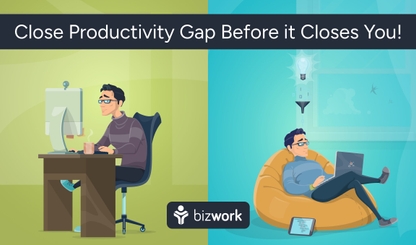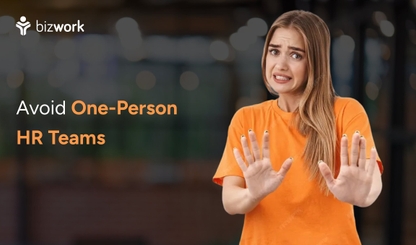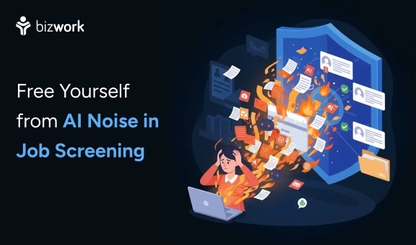Hiring the right talent has always been more than just filling a seat, it’s about building teams that can drive innovation, scale operations, and strengthen company culture. But one challenge continues to plague organizations of all sizes: bias in recruitment. Whether conscious or unconscious, bias can tilt decisions, narrow candidate pools, and compromise both diversity and quality.
In recent years, AI recruitment software has emerged as a transformative solution. By automating screening, analyzing candidate data objectively, and standardizing evaluations, AI promises to reduce hiring bias at scale. Yet, it’s not just about replacing human judgment with algorithms—it’s about designing systems that promote fairness while complementing human expertise.
This blog explores how AI is reshaping recruitment, the types of biases to watch out for, and the proven strategies companies can use to achieve bias-free hiring.
We’ll also look at best practices, future trends, and how to practically adopt AI recruitment tools for fair hiring without falling into common pitfalls.
Let’s see what difference AI brings in the traditional hiring biases first
How is AI Transforming Traditional Recruitment?
Recruitment has traditionally been time-consuming, subjective, and often inconsistent. Hiring managers rely on resumés, referrals, and intuition methods that are very likely to be affected by human bias. But with the rise of AI hiring software, this process is undergoing a seismic shift.
Here’s how AI is changing recruitment today:
-
Automated Resume Screening: Algorithms can parse thousands of resumes in minutes, ranking candidates by skills and experience, not personal connections.
-
Predictive Analytics: AI recruitment platforms use data models to assess likelihood of success, retention, and cultural fit rather than just personal hints.
-
Interview Intelligence: AI-powered tools analyze language, tone, and even facial cues in structured interviews to reduce bias in interviews that stem from ethnicity or any other form of racial biases.
-
Diversity Insights: Dashboards highlight gaps in sourcing and help recruiters avoid bias in hiring by diversifying candidate pipelines to keep the hiring solely based on merit rather than looks or connections.
The goal isn’t to eliminate human recruiters, it’s to provide them with fair AI hiring solutions that offer faster, more consistent, and more inclusive decisions. Then how should you avoid biases in hiring? Let’s find that.
Read more: Traditional Hiring vs AI Recruitment Software: What Works Best in 2026?
How Can Companies Overcome Key Challenges in Reducing Bias?
The biggest challenge isn’t whether AI can reduce bias, it’s whether organizations use it responsibly. Some common struggles with hiring from AI along with its proven solution include:
- Challenge: Overreliance on Algorithms
Solution: Use AI as a decision-support system, not a decision-maker. Combine algorithmic insights with recruiter judgment to balance efficiency with fairness.
- Challenge: Data Quality Issues
Solution: Regularly audit and clean datasets. Ensure representation across gender, ethnicity, and experience levels before training AI models to avoid reinforcing bias.
- Challenge: Lack of Transparency
Solution: Choose AI recruitment software that offers explainable AI features. Provide recruiters with clear reasoning behind AI-driven recommendations to build trust and accountability.
- Challenge: Resistance to Change
Solution: Invest in change management and training. Show recruiters how to use AI recruitment tools for fair hiring that saves time, improves candidate matching, and reduces unconscious bias, making adoption easier.
Overcoming these requires leadership commitment, clear training, and utilising AI within a larger diversity, equity, and inclusion (DEI) strategy.

Though as a hiring person one must be aware that even AI learns from humans itself. Hence AI is likely to get some biases that you should be aware of.
Types of Bias in AI Recruitment Systems
It’s important to acknowledge that AI itself can inherit bias if designed or trained improperly. Understanding the main categories of bias helps organizations tackle them head-on:
1. Historical Bias
If past hiring data reflects discriminatory patterns (e.g., preferring one gender or ethnic group), the AI may replicate them.
2. Data Bias
Poorly balanced datasets can overrepresent certain demographics while underrepresenting others that eventually skews fair predictions.
3. Algorithmic Bias
Even neutral algorithms may prioritize irrelevant features (like name or zip code) unless carefully calibrated for bias detection in AI recruitment.
4. Measurement Bias
If performance indicators (e.g., “successful employee”) are poorly defined, the AI will also misjudge candidates.
So yes, AI recruitment software can be biased but the good news is that with proven strategies, and careful data inclusion, these risks are manageable. Let’s get a look at those winning strategies for ultimate AI hiring.
Proven Strategies for Reducing Bias in AI Recruitment
If you’re serious about bias free hiring, these strategies work in practice:
1. Audit Your Data
Regularly review datasets to ensure they reflect diverse candidate profiles. Include gender, ethnicity, educational backgrounds, and non-traditional career paths.
2. Blind Resume Screening
Configure AI recruitment software to remove identifiers like names, photos, or addresses before evaluation.
3. Standardized Assessments
Replace subjective criteria with structured skill-based evaluations. This reduces room for unconscious bias.
4. Human & AI Collaboration
Use AI to shortlist candidates but let recruiters conduct structured interviews, ensuring balance.
5. Bias Testing Protocols
Routinely test algorithms for discriminatory outcomes and document findings for compliance.
6. Feedback Loops
Collect recruiter and candidate feedback to refine AI performance over time.
By embedding these strategies, companies can avoid bias in hiring and build more equitable processes. Here are some common practices to implement AI recruitment software without any extra hassle.
Best Practices for Implementing Fair AI Recruitment Systems
Rolling out AI recruitment platforms requires more than just purchasing software. To maximize impact:
-
Pilot Before Scaling: Start with one department or region, then expand.
-
Train Recruiters: Educate teams on both the strengths and limits of AI, including how to reduce bias in interviews.
-
Transparency Matters: Choose vendors who provide explainable AI outputs.
-
Integrate with HR Ecosystem: Ensure compatibility with applicant tracking systems (ATS), payroll, and onboarding tools.
-
Measure KPIs: Track diversity ratios, time-to-hire, and candidate satisfaction as indicators of fairness and effectiveness.
By combining these practices with AI hiring software bias reduction features, organizations can turn technology into a true ally.
Benefits of AI in Recruitment Beyond Bias Reduction
While the best AI tools for recruitment are most discussed in the context of fairness, their benefits extend further:
-
Efficiency: Automated screening saves recruiters hours, allowing them to focus on candidate engagement.
-
Scalability: AI hiring platforms can process thousands of applicants simultaneously without fatigue.
-
Consistency: Decisions remain standardized, minimizing discrepancies between different hiring managers.
-
Improved Candidate Experience: Faster responses, personalized feedback, and smoother processes boost employer branding.
-
Compliance: Many systems now incorporate AI recruitment compliance features to align with GDPR, EEOC, and local labor laws.
When combined, these advantages of AI in recruitment create stronger, more resilient hiring pipelines.
What Does the Future Hold for AI in Recruitment?
Looking ahead, AI hiring platforms will become more advanced, offering real-time analytics, deeper personalization, and predictive workforce planning. Some trends to watch:
-
Bias Detection at Scale: Continuous monitoring will highlight and correct biases automatically.
-
Candidate-Centric AI: Tools will prioritize user experience, from conversational AI to transparent scorecards.
-
Integration with DEI Goals: Fair AI hiring solutions will align with broader corporate social responsibility strategies.
-
Small Business Accessibility: Affordable SaaS-based AI hiring software will empower SMBs to reduce hiring bias without enterprise-level budgets.
The bottom line? Companies that invest now in responsible, AI recruitment tools for fair hiring will be best positioned to thrive in a competitive talent market.
Conclusion
Bias in hiring is one of the most persistent challenges in recruitment. It limits diversity, stifles innovation, and leads to missed opportunities. But with the right approach, AI recruitment software offers organizations a powerful way to reduce hiring bias, create fairer processes, and deliver a stronger candidate experience.
Success doesn’t come from technology alone—it comes from combining AI tools for recruitment with transparent policies, human oversight, and a commitment to fairness. When AI is implemented with care, companies don’t just hire faster—they hire smarter, fairer, and more inclusively.
The future of recruitment isn’t about replacing humans with machines. That's why at Bizwork we are using AI recruitment platforms to complement human judgment, eliminate blind spots, and unlock true potential in every candidate. That’s how we build workplaces where fairness isn’t an afterthought, it’s the foundation.

FAQs
Train recruiters, remove identifiers from resumes, and rely on structured assessments along with training your AI recruitment software would be the best choice.
Adopt structured, skills-based interviews supported by AI recruitment software like BizHire’s analytics based on transparent datasets.
Tools like HireVue, BizHire, Pymetrics, and Eightfold offer strong bias detection and fairness features.
Yes, but with oversight, audits, and compliance features, bias can be minimized.
Historical, data, algorithmic, and measurement biases are most common.
By auditing data, testing algorithms, and using AI recruitment tools for fair hiring responsibly.
Yes, modern SaaS-based AI recruitment platforms are affordable and scalable for small businesses to fasten their hiring workflows.



